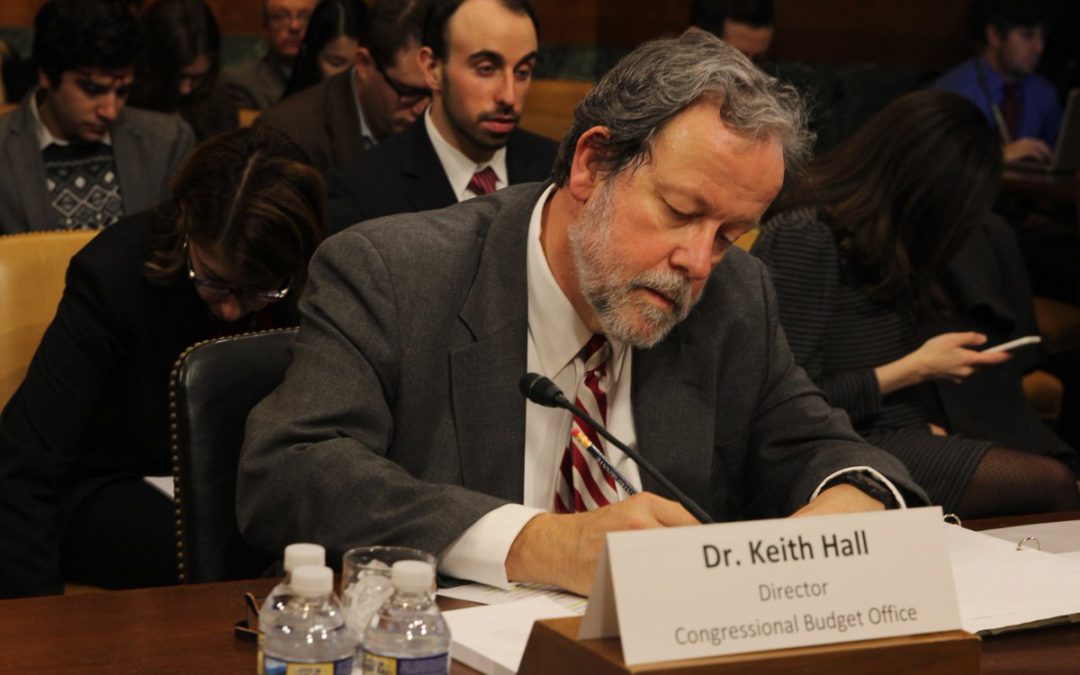WASHINGTON – The mission of the Congressional Budget Office would be “degraded” if the funding arrangement that ended the recent government shutdown remains in force for the rest of the year, CBO Director Keith Hall testified Wednesday.
Speaking at a Senate oversight hearing reviewing the performance of the CBO, Hall said that funding cuts for his office under the continuing resolution would mean “severely limited” activities in 2018. While the Senate and House Appropriations Committees have recommended funding of $48.1 million and $48.5 million, respectively, the temporary budget fix reduces the budget for the CBO to $46.1 million.
Sen. Chris Van Hollen (D-MD) called the office a “referee” on Capitol Hill, where it serves as a nonpartisan source of data and analysis for lawmakers. Though their staff numbers fewer than 250 people, the office often plays an outsized role during highly partisan congressional fights.
Sen. Mike Enzi (R-WY), chairman of the Senate Budget Committee, asked Hall whether his office could be more transparent and timely in its reports. But Hall says that cuts to his agency’s funding could erode its ability to do so.
“Many initiatives of great interest to the Congress could be undertaken only if CBO had more employees, so we have submitted a budget request to hire 8 new staff members in 2019,” Hall said. “The new staff would help CBO respond to requests for information more quickly when there is a surge in demand.” Hall says that the CBO could hire new staff members more quickly if Congress appropriates the necessary funding.
Ranking committee member Sen. Bernie Sanders (I-VT) criticized the 3-week budget fix for holding agency funding constant, known as the “continuing resolution” or CR.
“The idea that we’re saying every agency of government every month is going to get exactly the same amount of money as they previously got because of a continuing resolution is insane,” he said, calling for the committee to pass a yearly budget for 2018.
“We heard from the Pentagon spokesperson a few weeks ago that going from CR to CR – we’ve now had four – results in wasteful spending at the defense department and has negative consequences for our defense,” Sen. Chris Van Hollen (D-MD) added, asking Hall if the CBO would see similar effects if it continued to function under a short-term spending bill.
In 2017, the CBO produced more than 700 formal cost estimates, thousands of informal cost estimates, 128 appropriations scorekeeping tabulations and 86 analytical reports and working papers. If the agency continues under a CR, Hall testified that the CBO will have to put off some of its existing projects, purchase less data, and cancel plans for training and travel. “That does have a consequence for us,” he said.
The continuing resolution will fund the government until Feb. 8, and the CBO will operate with its existing funding until that date.

